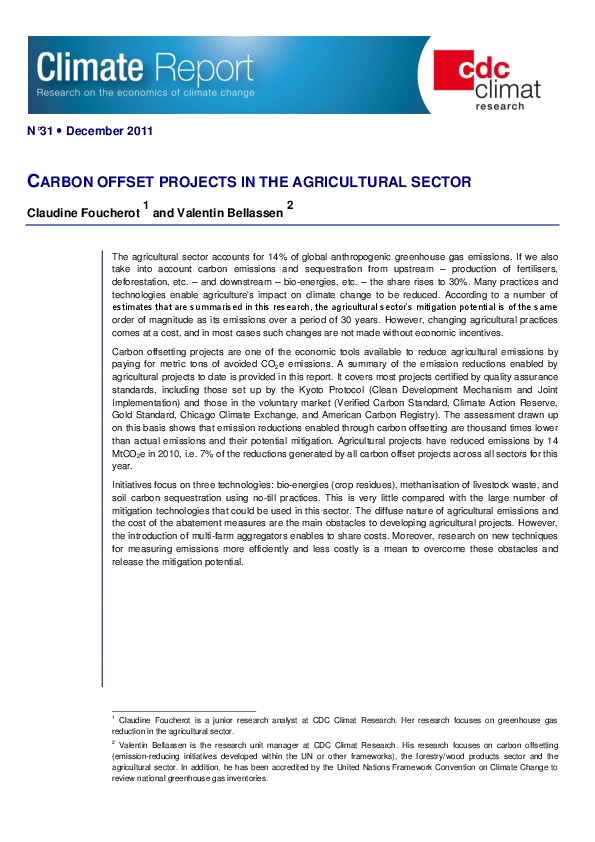CARBON OFFSET PROJECTS IN THE AGRICULTURAL SECTOR
By Claudine FOUCHEROT et Valentin BELLASSEN
The agricultural sector accounts for 14% of global anthropogenic greenhouse gas emissions. If we also take into account carbon emissions and sequestration from upstream – production of fertilisers, deforestation, etc. – and downstream – bio-energies, etc. – the share rises to 30%. Many practices and technologies enable agriculture’s impact on climate change to be reduced. According to a number of estimates that are summarised in this research, the agricultural sector’s mitigation potential is of the same order of magnitude as its emissions over a period of 30 years. However, changing agricultural practices comes at a cost, and in most cases such changes are not made without economic incentives.
Carbon offsetting projects are one of the economic tools available to reduce agricultural emissions by paying for metric tons of avoided CO2e emissions. A summary of the emission reductions enabled by agricultural projects to date is provided in this report. It covers most projects certified by quality assurance standards, including those set up by the Kyoto Protocol (Clean Development Mechanism and Joint Implementation) and those in the voluntary market (Verified Carbon Standard, Climate Action Reserve, Gold Standard, Chicago Climate Exchange, and American Carbon Registry). The assessment drawn up on this basis shows that emission reductions enabled through carbon offsetting are thousand times lower than actual emissions and their potential mitigation. Agricultural projects have reduced emissions by 14 MtCO2e in 2010, i.e. 7% of the reductions generated by all carbon offset projects across all sectors for this year.
Initiatives focus on three technologies: bio-energies (crop residues), methanisation of livestock waste, and soil carbon sequestration using no-till practices. This is very little compared with the large number of mitigation technologies that could be used in this sector. The diffuse nature of agricultural emissions and the cost of the abatement measures are the main obstacles to developing agricultural projects. However, the introduction of multi-farm aggregators enables to share costs. Moreover, research on new techniques for measuring emissions more efficiently and less costly is a mean to overcome these obstacles and release the mitigation potential.
